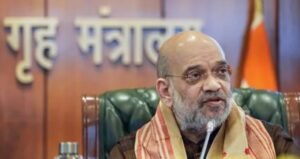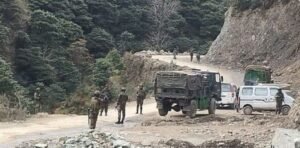On Sunday, the Centre declared Tehreek-e-Hurriyat (TeH) as an unlawful association for a ban of five years under the UAPA, 1967.
About Tehreek-e-Hurriyat (TeH)

The Tehreek-e-Hurriyat (TeH), is a separatist and controversies organization founded in 2004 by Syed Ali Shah Geelani in Jammu and Kashmir, India. It advocates for the right to self-determination for the people of J&K, potentially leading to independence from India. And, is considered a moderate separatist group that acts as an umbrella for All Party Hurriyat Conference (APHC), a renowned Kashmiri separatist group.
Moreover, in the previous week, the Government of India declared the organization a “terrorist association” and banned it by considering all of it illegal.
Why Centre ban TeH and call it ‘unlawful’?

Union Home Minister Amit Shah said that the TeH was involved in spreading anti-nationalist propaganda to separate Jammu and Kashmir from India and to form Islamic rule in the Union Territory. Shah warned that “if any organization or individual is found committing anti-India activities” they will strictly react and take action under the law.
The MHA issued a notification against the TeH, for being involved in raising funds through various sources, including proxy organizations for promoting unlawful activities, supporting terrorist acts and organizing stone pelting on the security forces in Jammu and Kashmir, hampering the sovereignty, integrity and communal harmony of the country. Regarding this, the ministry declared the ban on the ‘unlawful association’ under various sections like UAPA, Arms Act, RPC (Ranbir Penal Code), etc, as the outfit was never believed in the democratic system.
Impact of the Ban

The ban on TeH aimed to curb secessionist activities, like terrorism which casts a dark shadow over Jammu and Kashmir. It might hinder the influence of the organization over the militant group. This could potentially lead to a decrease the violence and create a more stable environment.
Ultimately, the ban under the UAPA, the impact will be seen in restricting TeH’s “peaceful” political expression and addressing the immediate security concerns, which will shape the political landscape of Kashmir and maintain a delicate balance between security and human rights.
The UAPA Act
The Unlawful Activities (Prevention) Act, 1967 (UAPA) is a controversial law in India that grants power to the government to deal with unlawful activities to maintain integrity and national security. While assisting power to arrest and detain the suspect for an extended period to cripple illegal activities. However, the extension for detention powers, without immediate judicial review might create anxieties regarding the process and violation of human rights.












Comments 1